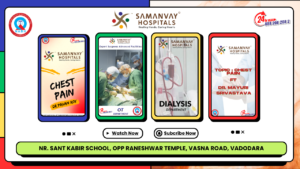
Table of Contents chronic diseases
- Introduction
- Understanding diabetes
- Importance of managing chronic diseases
- Practical steps to manage diabetes effectively
- Diet and nutrition for diabetics
- Exercise and physical activity
- Medication and monitoring
- Mental health and stress management
- Role of support systems
- Choosing the right healthcare facility
- Conclusion
- FAQs
Introduction
Living with a chronic illness like diabetes can be challenging. However, it is possible to lead a healthy life by following simple and effective management techniques. Diabetes will not end in a night. It needs to be treated on a daily basis, undergo check-ups, and have your health taken into account.
Furthermore, early treatment and diagnosis definitely do make a vast difference in regulating blood sugars. Simple things like following a balanced diet, regular exercise, proper medication timing, and stress reduction can come a long way to make a vast difference.
Therefore, you don’t need to suffer from it by yourself—assistance from doctors, relatives and friends, and friends can guide you in the right direction. With diabetes control, you can avoid diabetes complications and lead healthy everyday.
Understanding chronic diseases like diabetes
Diabetes is a chronic medical disease where the body fails to produce insulin or use insulin. This leads to high blood sugar levels, which further result in severe medical conditions in the long term.
There are basically three forms of diabetes:
- Type 1 Diabetes – Mainly found in children and young adults.
- Type 2 Diabetes – Most common type; found in adults.
- Gestational Diabetes – Occurs during pregnancy.
However , if your diabetes is not under good control, it can lead to complications like kidney failure, heart disease, eye disease, or nerve damage.
Importance of managing chronic diseases
Chronic diseases like diabetes do not just affect your body. They affect your lifestyle, mood, and finances as well. That is why control is necessary.
Effective management helps:
- Suppressing symptoms
- Prevents complications
- Enhances day-to-day functioning
- Enhances quality of life
Moreover, disciplined living and medical attention can reduce hospitalization and emergencies.
Practical steps to manage diabetes effectively
There is lifestyle change, medication, and blood glucose monitoring in diabetes control. Let us take a glance at some simple and practical measures to be undertaken:
- Establish Clear Health Objectives
- Target blood sugar regulation
- Reach a normal weight.
- Establish physical endurance.
- Adhere to a Diabetes Treatment Plan
- Take medication daily.
- Schedule visits to the doctor regularly.
- Check your blood sugar level.
- Develop a Daily Routine
- Meal timing and exercise routine
- Sleep 7-8 hours nightly.
- Drink more water throughout the day.
Diet and nutrition for diabetics
Your diet actually regulates the amount of blood sugar. Proper diet is imperative.
Healthy Foods to Eat:
- Whole grains (brown rice, oats)
- Leafy vegetables
- Lean protein foods (chicken, tofu)
- Low glycemic index fruits (berries, apples)
- Healthy fats (olive oil, nuts)
Foods to Limit or Avoid:
- Sweetened drinks
- Fried foods
- Refined bread and pasta
- Prepackaged snacks
- Excessive drinking
* Pro Tip: Have small meals throughout the day and not huge ones. This will more effectively manage the blood sugar level.
Exercise and physical activity
Exercise on a regular basis makes your body use insulin without any problem. Apart from this, exercise keeps an individual healthy in weight and also decreases stress.
Easy Diabetic Exercises:
- Walking (30 minutes a day)
- Yoga
- Light jogging
- Cycling
- Swimming
Therefore , always consult your physician before initiating any new exercise program. Begin slowly and progress gradually.
Medication and monitoring
Nearly all people with diabetes need medication, either tablets or insulin. The medication maintains blood sugar levels in a healthy range.
Good Tips:
- Never skip taking medicines.
- Monitor sugar daily.
- Inform your doctor of side effects.
However , measurement using digital health aids like glucometers or mobile apps is less obtrusive.
Mental health and stress management
Chronic disease affects not only your body but your head as well. Stress raises blood sugar, so mental health is something to take care of, too.
Try These Things:
- Practice meditation or deep breathing.
- Get involved with a support group.
- Spend time with fun hobbies.
- Get therapy if you need it.
Additionally, a secure emotional status allows you to maintain your management regime.
Role of support systems
Good diabetes care can become successful diabetes care with adequate support. Family and friends, doctors and nurses, all help in a way that is meaningful.
How support Works:
- Reminds you to take medication
- Encourages healthy lifestyle habits
- Provides emotional reassurance
- Helps when you need it
Moreover, hospitals in India are devising patient-friendly diabetes care packages. These packages are inclusive of nutritional advice, frequent check-ups, and emergency care under one roof.
Choosing the right healthcare facility
Not all hospitals are equal. Dealing with a chronic condition like diabetes requires a group of physicians who are sympathetic to your health and aware of your way of life.
Things to Look For:
- Endocrinologists and dietitians trained
- Diabetes education and counseling
- Emergency care and ICU facilities
- Regular monitoring services
Gujarat citizens have access to some of the best hospitals in baroda
with world-class diabetic care. Customized care and state-of-the-art technology are some of the features that Baroda hospitals excel in for proper long-term health. Furthermore, most Indian hospitals nowadays offer the complete range of diabetes care, from diagnosis to all the new treatment modalities.
Conclusion
Lifestyle change isn’t giving up the day-to-day. It is a better choice every day. What you eat and physically do what you take and how you nurture your feelings – add all the small things.
Additionally, you can live a healthy, happy and productive life with the right medical team and support system. Whether you are making new diagnoses or you have had diabetes for decades, it is more and more to come. So don’t linger. Seize the reins of your own health today. Select the right hospital , be consistent with your regimen, and never ignore the warnings your body provides.
FAQs
Type 2 diabetes is possible in some individuals with weight loss, exercise and the help of a healthy diet. Always go through a doctor for an analog plan.
Depending on your treatment, it can be 1-4 times a day. Your doctor will advise you to consider your situation.
Yes you can. But make sure you bring your medicines, glucometer and a snack. And your doctor’s phone number is in hand.
Common symptoms are often cut or wound, and blurred vision, excessive thirst, fatigue, slow treatment, and blurred vision. If they are, then pay medical attention.







